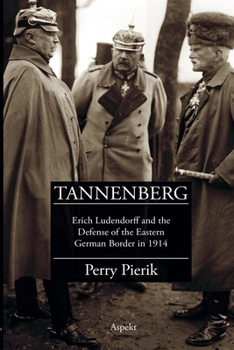Tannenberg Erich Ludendorff and the defence of the German Eastern border in 1914
Tannenberg; looking back, this town and battle symbolise an atypical episode in the First World War: the war of movement. In reality the war quickly turned into a trench war, such as we knew it in the West.
With the battle at Tannenberg and the ones that followed, which all had a quite positive outcome for Germany, Ludendorff had left his mark. This untimately brought the duo Von Hindenburg - Ludendorff to the absolute military top of Germany. As from 1917 they, together with the emperor, dictated the course of the war. Ludendorff left such a heavy mark on everything that people also referred to it as 'Ludendorff's dictatorship'. Not only did he interfere in military matters, but also in politics, the war economy, propaganda, and he played a decisive role in major war decisions in other areas, such as diplomacy and the submarine war. In the end the war became identified with Ludendorff, who had to step aside when the unavoidable defeat came in 1918.
This was a bitter disappointment for Ludendorff. He never got over it and it was the beginning of his alienation from imperial Germany, in which he had grown up, and the start of his political career, which was soon to be marked by the 'Dolchstosslegende'. His role in the early Hitler movement and his participation in the Hitler-Putsch in 1923 have coloured the view on Ludendorff's character. Because of this we have lost touch with the curious history of Tannenberg and the battles that followed until the winter of 1915, which were of great historical significance. These battles weren't decisive. They didn't bring victory to Germany. The victory at Tanneberg did, however, save East Prussia from a Russian invasion in 1914. When at the end of the Second World War the Russian Army approached the battle memorial, German engineers blew it up.
With this short monograph the author has tried to reproduce the history of the battle at Tannenberg. Almost 70 years after Ludendorff passed away and almost 90 years after the battle, it will help us to remember the difficult genesis of Europe as we know it now.
Related Subjects
History




